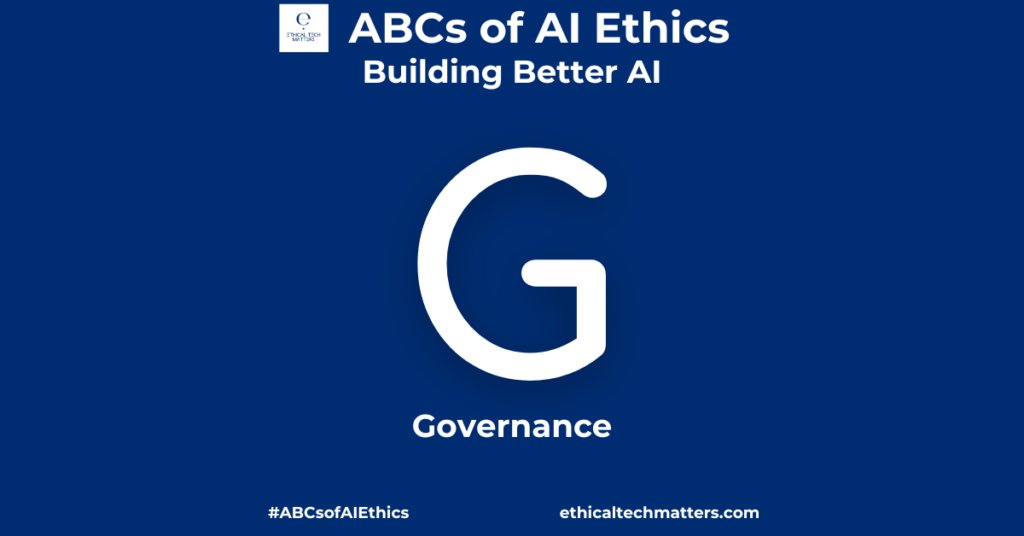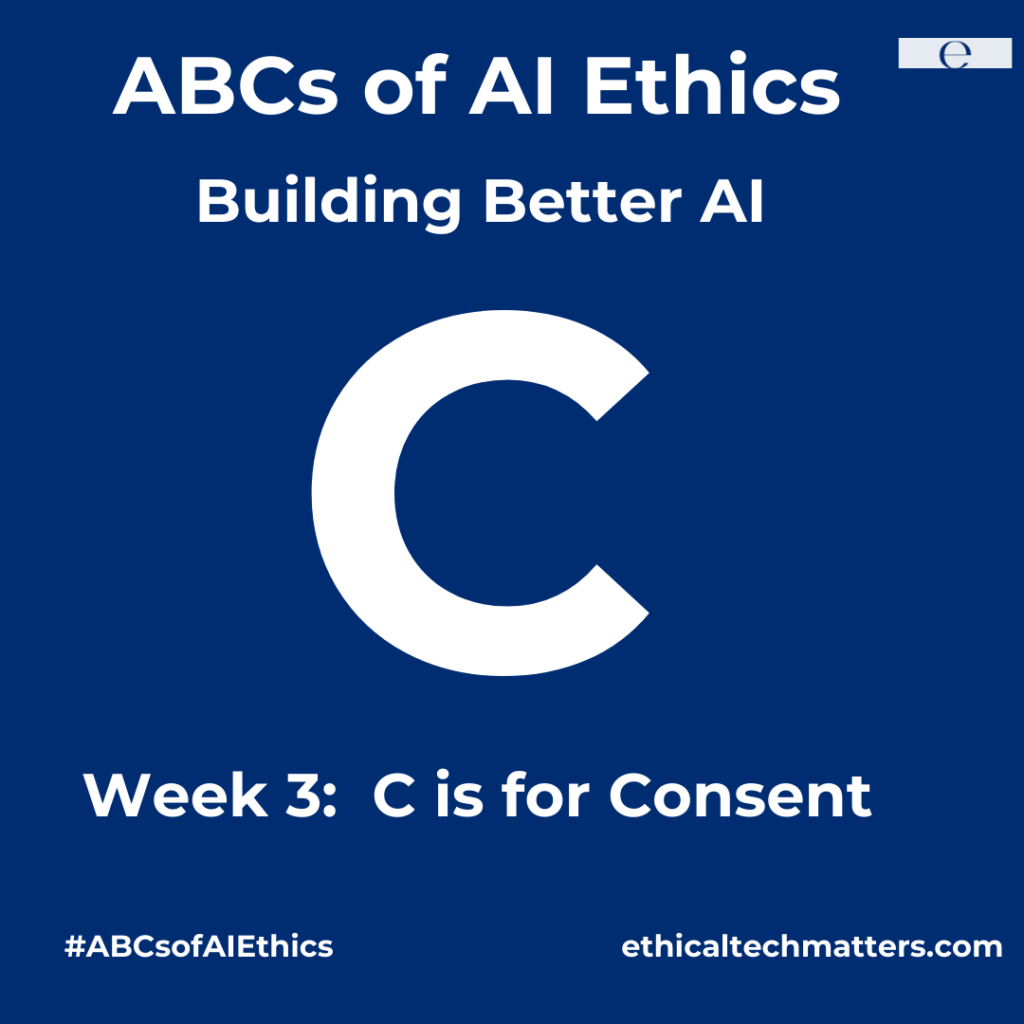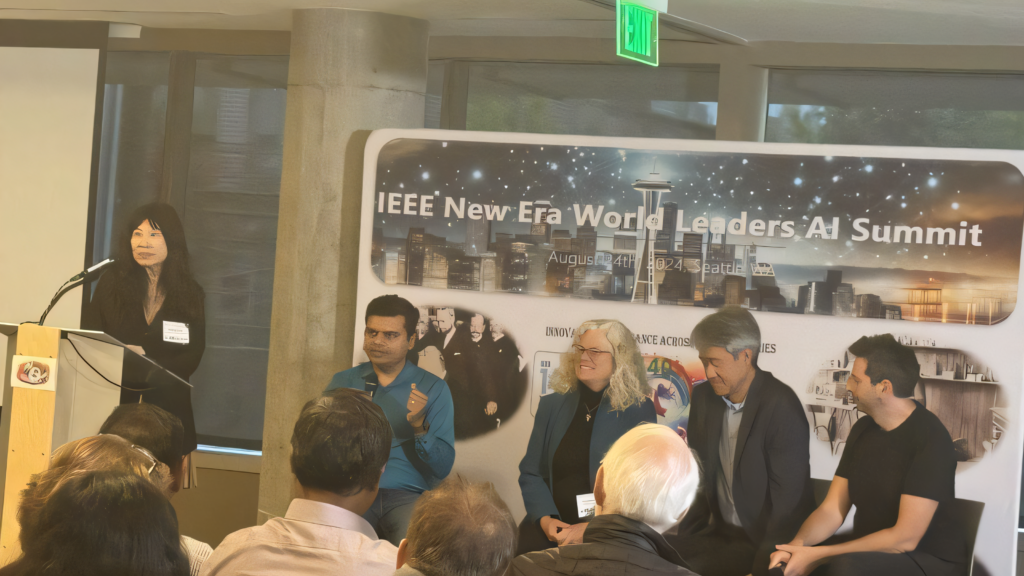This article explores how organizations can prevent AI-related harm by bridging technical excellence with human-centered impact, ensuring responsible and sustainable AI deployment. […]
H is for Harm: The Human Side of AI

Emphasizes the importance of developing AI that aligns with ethical standards, reduces bias, and promotes transparency.

This article explores how organizations can prevent AI-related harm by bridging technical excellence with human-centered impact, ensuring responsible and sustainable AI deployment. […]

AI governance isn’t just about compliance—it’s about trust, transparency, and transformation. Explore how shifting from rigid controls to enabling governance can drive better AI adoption and innovation. […]

When a financial AI system showed perfect fairness metrics across all demographics, its creators were proud. But examining the weekend data revealed an uncomfortable truth: the system was 40% less likely to approve transactions outside traditional banking hours, inadvertently encoding socioeconomic bias into its “fair” decisions. After analyzing hundreds of AI systems throughout 2024, I’ve discovered that the most sophisticated approaches to fairness often create the most insidious biases. Join me as we explore the hidden complexities of AI fairness and uncover practical strategies for building AI systems that truly work for everyone. Drawing from real-world implementations and hard-learned lessons, we’ll examine why perfect metrics often hide deeper problems, and how organizations can move beyond surface-level equality to achieve genuine equity in their AI systems. […]
Read More… from F is for Fairness: Building AI Systems That Work for Everyone

Sometimes the most profound insights emerge from unexpected moments. While waiting for my Thanksgiving ham to cook, I discovered something unsettling about AI that would challenge my assumptions about enterprise implementation. As an IEEE CertifAIEd Lead Assessor, I’ve evaluated countless AI systems, but this holiday experiment in my kitchen revealed a critical gap between AI confidence and competence that every technology leader needs to understand.
The results were stark: leading AI models showed remarkably high confidence while failing at basic rule-following tasks. ChatGPT achieved 13% accuracy, Claude reached 21%, and Gemini performed best at 46% – yet all displayed confidence levels above 90%. This disconnect mirrors patterns I’ve witnessed in enterprise settings, where sophisticated AI implementations often mask fundamental governance gaps.
In this article, I share both personal insights from this unexpected experiment and professional guidance for implementing effective AI governance. Drawing from years of certification experience and real-world testing, I offer a practical framework for ensuring your AI systems don’t just appear competent, but actually follow critical operational rules.
[Read more to discover the four pillars of effective AI governance and a practical implementation roadmap for 2025…] […]

Transform your AI data privacy from compliance checkbox to competitive advantage. Learn how leading organizations protect data while building user trust in AI systems. […]
Read More… from D is for Data Privacy: Beyond Compliance: Transforming Data Privacy in AI Systems

Unveiling the Importance of AI Governance – Part 1 of a 3-Part Series
Dive into the first article of Marian Newsome’s groundbreaking series on AI governance. Marian, founder of Ethical Tech Matters and an expert in ethical technology, explores why AI rule-following matters for businesses. Through a fascinating experiment with ChatGPT, Claude, and Gemini, she exposes how AI systems struggle with even basic rules, illuminating the critical need for robust governance frameworks.
Learn how ethical AI governance can prevent costly failures in industries like finance, healthcare, and manufacturing. Don’t miss real-world case studies and essential insights on frameworks like IEEE P2863™, NIST AI RMF 1.0, and the EU AI Act.
Stay tuned for the next parts of the series, where Marian will unpack lessons from AI failures and share actionable strategies to implement effective AI governance. Subscribe now to ensure you don’t miss expert guidance on building ethical AI systems for the future! […]
Read More… from When AI Can’t Follow Simple Rules: A Critical Warning for Enterprise Leaders

Are you still treating AI consent as just another checkbox? Our research shows that traditional consent processes are failing both users and organizations in the age of AI. Discover how leading organizations are transforming their approach to informed consent, building trust, and driving better AI adoption through meaningful engagement. This comprehensive guide breaks down the four essential elements that turn AI consent from a legal requirement into a strategic advantage. […]
Read More… from C is for Consent: Beyond Checkboxes: Revolutionizing Informed Consent in AI Systems

Who’s responsible when AI makes decisions? This fundamental question shapes the future of AI governance and ethical implementation. As organizations increasingly rely on AI systems for critical decisions, establishing clear accountability isn’t just good practice—it’s essential.
Accountability in AI means having clear oversight and responsibility for AI systems. Think of it as knowing exactly who’s in charge when AI makes important decisions, from data collection to final outcomes. Without this clarity, AI impacts can go unchecked, potentially affecting everything from hiring decisions to customer experiences.
In this first installment of our ABCs of AI Ethics series, we explore the essential components of AI accountability and provide practical steps for implementation… […]
Read More… from A is for Accountability: Building Trust in AI Systems

Reflecting on the United Nations Foundation Science Summit 2024, one thing is clear: We are at a pivotal moment in humanity’s relationship with AI. The summit addressed a key issue: how to govern a technology that blurs the line between humans and machines. The Challenge of AI Governance The UN report “Governing AI for Humanity” […]
Read More… from AI Governance: UN Summit Insights on Ethical Tech Future

Innovation Renaissance-IEEE New Era World Leaders AI Summit in Seattle was a meeting of global innovators. They discussed AI’s role in solving global challenges. This summit underscored AI’s groundbreaking potential across sectors, highlighting innovation, ethics, and collaboration. Key Takeaways from the Summit: AI’s Transformative Potential: The event showcased revolutionary AI developments, especially in healthcare. A […]
Read More… from Unlocking AI’s Potential: Insights from the IEEE New Era World Leaders Summit